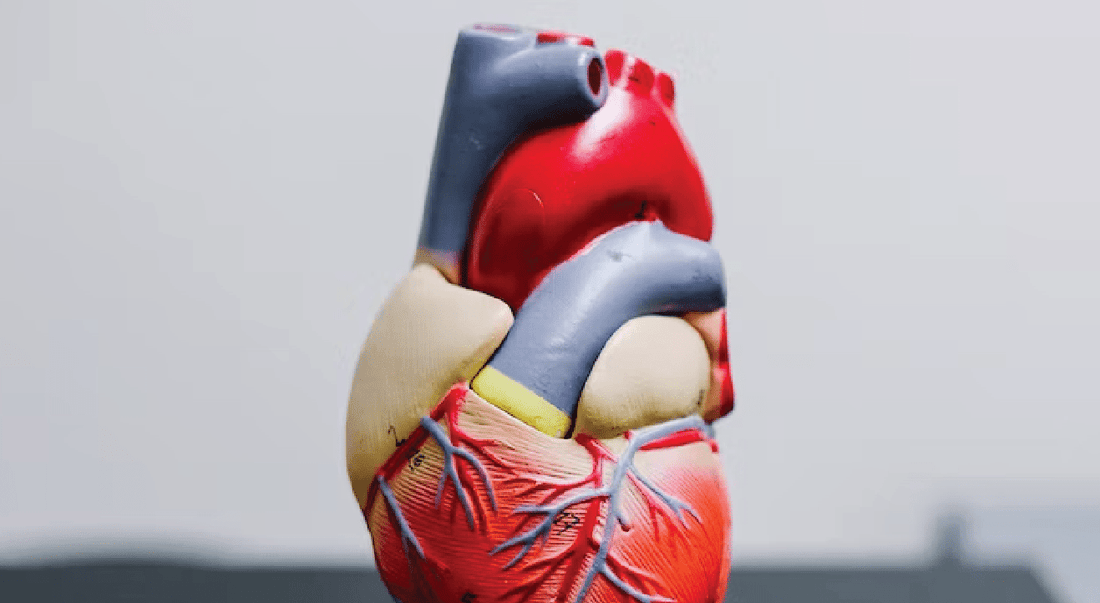
Tart Cherry Juice's Impact on Cardiovascular Health
Larry LogsdonShare
Heart disease remains a leading cause of mortality and morbidity worldwide. The ongoing search for natural and effective interventions has led to the discovery of some remarkable natural foods and their potential health benefits. Among these foods, tart cherries – and specifically their juice – have emerged as a noteworthy contender in the arena of cardiovascular health. Let’s explore the impact of tart cherry juice on the heart and vascular system.
- What is Tart Cherry Juice?
Tart cherry juice is derived from the Morello (European) or Montmorency (USA) cherry, a type of sour cherry grown predominantly in Eastern Europe and the United States, Canada, and France. Unlike its sweet counterpart, the tart cherry is sharper in taste, often making it preferable for juices, pies, and jams. Its deep red hue is a hallmark sign of its rich anthocyanin content.
- Anthocyanins: The Heart of the Matter
Anthocyanins, a subset of flavonoids, are powerful antioxidants that give tart cherries their distinctive color. They act to combat oxidative stress by neutralizing free radicals, thereby protecting cells from damage. This property has a direct bearing on cardiovascular health.
- Oxidative Stress and Cardiovascular Disease: The buildup of free radicals in the body leads to oxidative stress, which plays a pivotal role in the onset and progression of cardiovascular diseases. Oxidative stress damages blood vessels, leading to inflammation, atherosclerosis, and eventually heart disease. By reducing this oxidative load, anthocyanins aid in heart protection.
- Anti-inflammatory Benefits
Apart from their antioxidative properties, anthocyanins in tart cherry juice exhibit potent anti-inflammatory effects:
- Reducing C-reactive Protein (CRP): Elevated levels of CRP are indicative of inflammation in the body. Tart cherry juice has been shown to reduce CRP levels, signifying a reduction in inflammatory processes that can harm cardiovascular health.
Inhibiting Pro-inflammatory Cytokines: Tart cherry juice dampens the effect of inflammatory agents like interleukin-6 and tumor necrosis factor-alpha, both implicated in cardiovascular diseases.
- Blood Pressure Regulation
A paramount concern in cardiovascular health is the regulation of blood pressure. Hypertension, or elevated blood pressure, strains the heart, damages blood vessels, and escalates the risk of heart attacks and strokes.
Studies have shown demonstrated that the consumption of tart cherry juice can lead to modest reductions in blood pressure levels. The exact mechanisms remain under investigation, but they are likely tied to the antioxidative and anti-inflammatory properties of anthocyanins.
- Cholesterol and Lipid Metabolism
High cholesterol, particularly LDL (the “bad” cholesterol), is a significant risk factor for heart disease. Tart cherry juice has shown promise in:
- Lowering LDL Cholesterol: The compounds in tart cherry juice may reduce the oxidation of LDL cholesterol. Oxidized LDL is particularly harmful, contributing to arterial plaque buildup.
- Improving Overall Lipid Profile: Some studies indicate an enhancement in the overall lipid profile, including a potential increase in HDL (the “good” cholesterol).
- Endothelial Function and Vascular Health
The endothelium, the inner lining of blood vessels, plays a vital role in vascular health. Dysfunction here can lead to atherosclerosis and other cardiovascular diseases.
Tart cherry juice can improve endothelial function, likely due to the combined antioxidative and anti-inflammatory effects of its compounds. Better endothelial function translates to improved blood flow and decreased risk of vascular complications.
- Potential Weight Management Implications
Obesity is a significant risk factor for cardiovascular disease. Preliminary research suggests that tart cherry juice might influence factors related to weight management and fat storage. While not
its primary benefit, this additional advantage could further its positive implications for heart health.
- Dosage and Considerations
Most studies examining the cardiovascular benefits of tart cherry juice have participants consume about 8-12 ounces (240-355 ml) of the juice daily. It's essential to choose a product with no added sugars to maximize health benefits.
However, as with any natural remedy, it's crucial to consult with a healthcare professional before making it a regular part of one's diet, especially if on medication or having existing health concerns.
Conclusion
The role of diet in cardiovascular health cannot be understated. Tart cherry juice, with its rich array of anthocyanins and other beneficial compounds, emerges as a potential ally in the fight against heart disease. While it's not a replacement for established medical therapies, it represents a natural adjunct that could complement traditional approaches to heart health.
Always remember, the journey to cardiovascular health is multifaceted, and while tart cherry juice can play a part, it's essential to consider a holistic approach that includes a balanced diet, regular exercise, stress management, and regular check-ups.
